Propositions, Truth, Persons and Vagueness
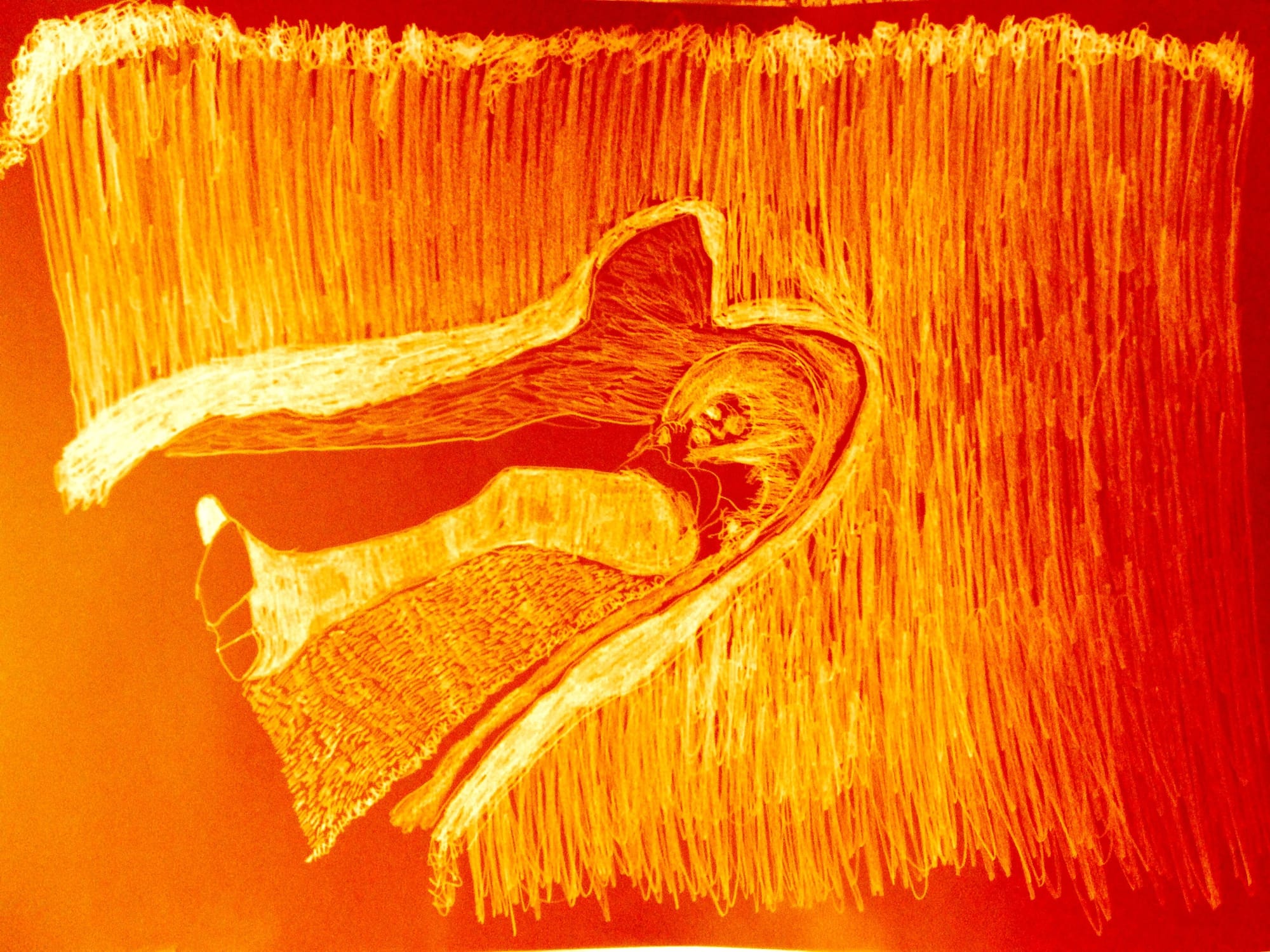
Interview by Richard Marshall

'For me, the most interesting aspect of philosophy is the arguments. And there are arguments in metaphysics. Suppose you think that metaphysics is dumb. Then you must think that the arguments in metaphysics are dumb. Take one of those arguments. Suppose you think it has a false premise. Fair enough. That is a good reason to oppose that argument. But opposing that argument in that way is not being a critic of metaphysics, it is instead opposing a single argument.'
'In the case Kripke describes, Pierre does not accept the first of these contradictory English sentences: ‘London is pretty’ and ‘London is not pretty’. Moreover, I do not think that there is any logical contradiction among the sentences that Pierre does accept.So to the extent that Kripke’s puzzle is generated by Pierre the logician having logically contradictory beliefs, the claim that logical form is had by sentences (as opposed to propositions) dissolves Kripke’s puzzle.'
'... “truth depends on the world” could mean that there is some x, the world, and each true proposition is true because x exists. If it means this, then I deny that truth depends on world.'
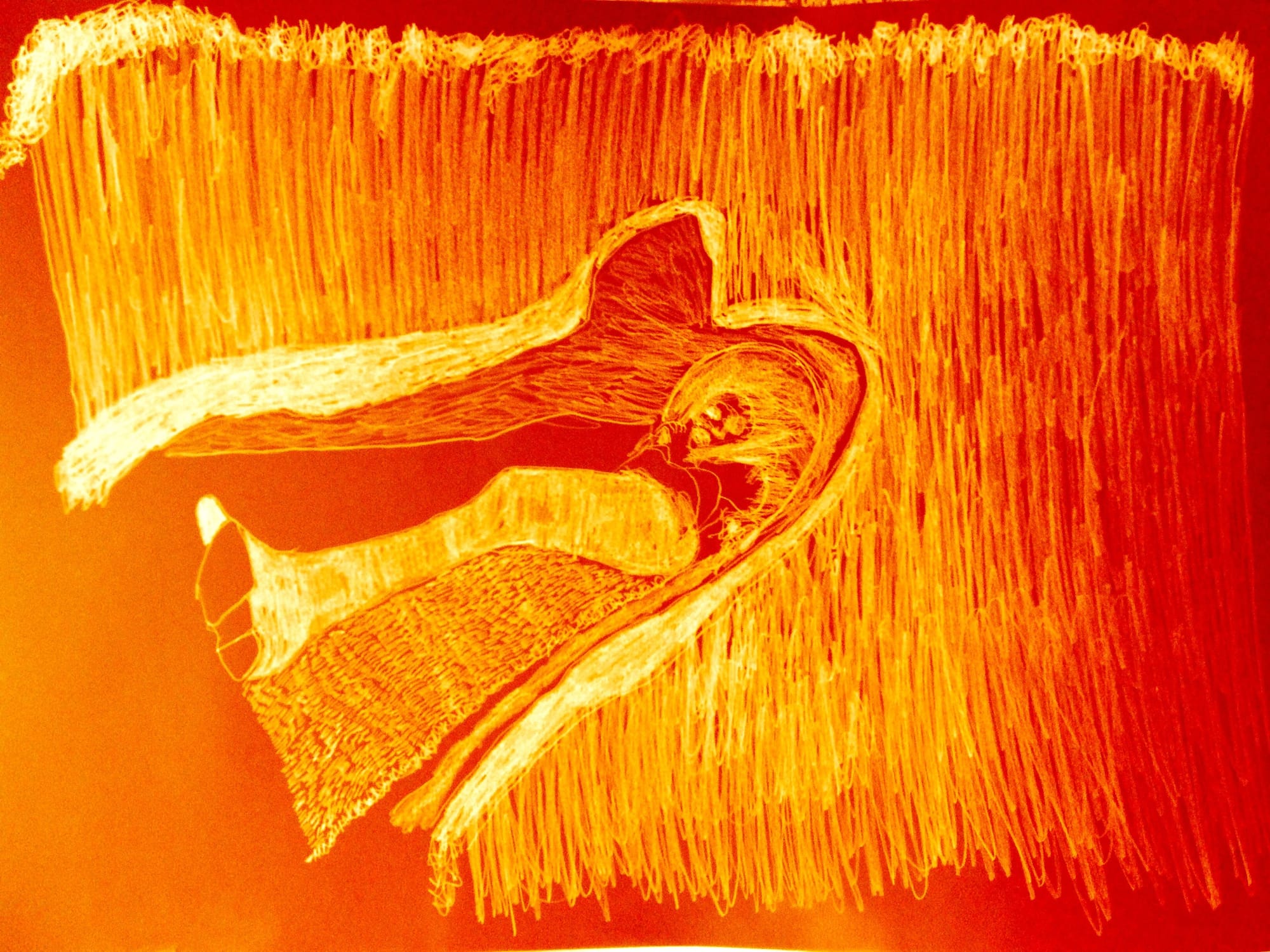
Trenton Merricks's main fields are metaphysics, epistemology, and philosophy of religion. Here he discusses the contemporary metaphysical scene, propositions, sentences, Kripke's puzzle of belief, propositions and possible worlds, structured propositions, what propositions are, truth to the world, correspondence, persons and objects, freewill and vagueness.
3:16: What made you become a philosopher?
Trenton Merricks: I read books all the time when I was a kid. No one was helping me choose what to read, and in retrospect my choices seem random. But I did have one strategy: when I finished a book that I liked, I would then read everything I could find by that same author. So, for example, in fifth grade my enjoying Tom Sawyer led to my reading Twain’s Letters from the Earth.
In high school I read C. S. Lewis’s space trilogy. I liked it. So I decided to read everything by him. I asked at the bookstore in the mall whether they had anything by C. S. Lewis other than what I could find in science fiction. I was surprised when they sent me to religion. But I bought the two books they had on the shelf. These books contained what we would all recognize as bona fide philosophical arguments (see, e.g., “The Cardinal Difficulty of Naturalism” in Miracles).
Reading these Lewis books gave me my first exposure to philosophical argument. I had read some stuff that dealt with philosophical questions (such as Letters from the Earth). But Lewis dealt with philosophical questions in a way that was completely new to me. He presented a careful line of argument that went on for pages and pages. He considered objections, and offered replies. He made distinctions that were relevant, distinctions I had not seen coming. I was thrilled. I felt like I had discovered a secret world where things made sense.
A few years later I went off to college, at Ohio State. Before classes started, I attended a “major fair” with tables set up for each major. I asked at various tables if their major included reasons for believing things. It turned out that was not a helpful question. I even asked a couple of times if their major resembled the kind of things that C. S. Lewis said in his books that were not fiction. That was even less helpful. But I did end up having enough of a conversation with a very patient philosophy professor—it was Tamar Rudavsky—to conclude that I should take Philosophy 101 on the chance that philosophy was what I was looking for. And of course it was.
I was allowed to take graduate seminars in my junior and senior years. These were much more interesting and much more fun than the pre-med classes that filled most of my schedule. They were even more interesting and more fun than the undergraduate philosophy classes, in part because they showed me that people today still do philosophy, still discover new things by building new arguments. Then one day I found out by accident—during a brief chat in the hallway with one of my professors—that graduate school in philosophy could be free and even come with a stipend. I found this absolutely astonishing. So why not go see?
3:16: You’re interested in a range of metaphysical issues. Before we look in detail at your arguments and ideas, can you say something about contemporary metaphysics. Many non-metaphysicians heard the news that logical positivists and Heidegger from a different angle had put paid to metaphysics and missed the news about Lewis, Kripke et al bringing it back. What’s the contemporary scene looking like?
TM: I think the contemporary scene is thriving. But you still run into critics of metaphysics. I find these critics genuinely puzzling. Let me try to explain why.
For me, the most interesting aspect of philosophy is the arguments. And there are arguments in metaphysics. Suppose you think that metaphysics is dumb. Then you must think that the arguments in metaphysics are dumb. Take one of those arguments. Suppose you think it has a false premise. Fair enough. That is a good reason to oppose that argument. But opposing that argument in that way is not being a critic of metaphysics, it is instead opposing a single argument.
Moreover, in opposing that argument in that way, you are almost certainly doing some metaphysics yourself. One reason that I say this is that the denial of the premise that you are rejecting will probably be as “metaphysical” as that premise itself. With this in mind, it is unlikely that you can successfully oppose all the arguments in metaphysics without just becoming another metaphysician. (Welcome home.) So opposing those arguments—showing where they go wrong—is not a likely route to becoming a critic of metaphysics.
But most of the critics that I have encountered seem to sidestep this route to becoming unwitting metaphysicians. For they do not explain where the arguments in metaphysics go wrong. After all, you cannot do that unless you are intimately familiar with those arguments. And those who are most dismissive of metaphysics, in my experience, are definitely not intimately familiar with those arguments. Yet they still think that those arguments are dumb.
I do not understand why anyone would be dismissive of any field of philosophy that is populated with arguments—metaphysics included—without being familiar with the details of the arguments in that field. It’s like these naysayers think that they can tell, a priori, that all those arguments have false premises or are invalid or beg the question. Talk about armchair philosophizing!
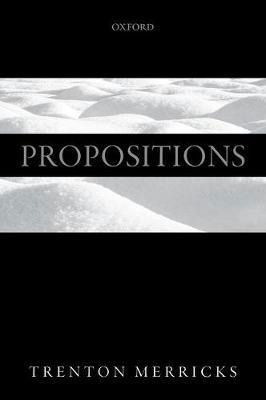
3:16: You’ve argued that propositions exist, and your argument for this conclusion is rooted in modally (possible and necessary) valid arguments. Can you give us the argument?
TM: All arguments have premises. So my argument for the existence of propositions has a premise. That premise is that there are modally valid arguments. That is, there are arguments such that, necessarily, if the premises are true, then the conclusion is true.
An entity must have certain features if it is to serve as a premise, or conclusion, of a modally valid argument. Those features include—so I argue—existing necessarily and having its truth-conditions essentially. I then argue that whatever entities have those features end up being the fundamental bearers of truth and falsity. I then use the label ‘propositions’ for those entities.
So: There are modally valid arguments. If there are modally valid arguments, then there are the premises and conclusions of modally valid arguments. So there are (what I call) propositions.
3:16: How come sentences and not propositions are the premises and conclusions of logically valid arguments?
TM: A logically valid argument is an argument that is valid in virtue of its form, and in particular in virtue of the logical form of its premises and conclusion. So the premises and conclusion of a logically valid argument must have logical form. I think declarative sentences have logical form. But I deny that propositions have logical form. This is a reason to say that sentences (and not propositions) are the premises and conclusions of logically valid arguments.
I am not going to try to summarize my defense of the claim that propositions do not have logical form. (For that defense, see the first two chapters of Propositions.) Instead, let me say something that might make that claim seem attractive.
Suppose you think, as I do, that one and the same proposition is expressed by the following two sentences: ‘Fido is a dog and Sylvester is a cat’ and ‘It is not the case that: Fido is not a dog or Sylvester is not a cat’. Question: What is the logical form of that one proposition?
I find the following reply attractive: There is no good answer to that question. For that proposition has no logical form. Rather, the sentences that express that proposition have logical form. And the different sentences that express that proposition can differ in logical form.
3:16: You say Kripke’s puzzle of belief can be solved using these resources. What’s the puzzle and how do you solve it?
TM: The sentence ‘Cicero is an orator’ has the logical form a is F. ‘It is not the case that Tully is an orator’ has the logical form it is not the case that b is F. A sentence of the form a is F does not logically contradict a sentence of the form it is not the case that b is F. So the sentence ‘Cicero is an orator’ does not logically contradict the sentence ‘It is not the case that Tully is an orator’. So an agent who accepts both of those sentences does not thereby believe anything logically contradictory. And nothing changes here even if—unbeknownst to the agent—‘Cicero’ and ‘Tully’ co-refer.
Raised in France on British propaganda, Kripke’s Pierre came to believe—as he still puts it—‘Londres est jolie’. Learning English in a London slum years later, he came to believe—again, as he still puts it—‘London is not pretty’. Pierre does not know that ‘Londres’ and ‘London’ refer to the same city.
In “A Puzzle About Belief,” Kripke says: ‘So we must say that Pierre has contradictory beliefs, that he believes that London is pretty and he believes that London is not pretty.’ Kripke immediately adds that there are ‘insuperable difficulties’ with Pierre’s having contradictory beliefs, since:
We may suppose that Pierre . . . is a leading philosopher and logician. He would never let contradictory beliefs pass . . . And surely anyone, leading logician or no, is in principle in a position to notice and correct contradictory beliefs if he has them . . .
Kripke emphasizes that Pierre is a logician. I think that only sentences have logical form, so only sentences can logically contradict each other. So let us grant—for the sake of argument—that Pierre would never accept two sentences that logically contradict each other.
In the case Kripke describes, Pierre does not accept the first of these contradictory English sentences: ‘London is pretty’ and ‘London is not pretty’. Moreover, I do not think that there is any logical contradiction among the sentences that Pierre does accept.So to the extent that Kripke’s puzzle is generated by Pierre the logician having logically contradictory beliefs, the claim that logical form is had by sentences (as opposed to propositions) dissolves Kripke’s puzzle.
Of course, Pierre believes and also believes to be false the proposition that London is pretty. But this is merely to have beliefs that are not all possibly true. This is not to believe anything contradictory. For the sentences with which Pierre expresses the relevant beliefs—‘Londres est jolie’ and ‘London is not pretty’—use different names for London. Pierre is just like the logically pristine—but factually ignorant—person who says that ‘Cicero is an orator’ and ‘It is not the case that Tully is an orator’.
3:16: Some philosophers think that propositions are sets of possible worlds. Why do they think this and why do you say they’re mistaken?
TM: Some philosophers think that “necessarily equivalent” propositions are identical. That is, they think that if, necessarily, proposition p is true if and only if proposition q is true, then p=q. We could put this view as follows: if p and q are true in all the same possible worlds, then p=q. This then suggests that we can “model” propositions as sets of possible worlds. That is, we can “model” a proposition as the set of worlds in which it is true.
I think that when some philosophers say “propositions are sets of possible worlds” all that they mean is that propositions can be modelled by sets of possible worlds. So they are not committed to the view that propositions really are sets of possible worlds. (So I am not contradicting them when I deny that propositions are sets of possible worlds.) And maybe you could model propositions by sets of possible worlds even if there are no possible worlds. I suppose that depends on the ontological commitments of modeling. I don’t have a view on this.
Set aside the claim that propositions can be modelled by sets of possible worlds. Consider instead the claim that there are propositions, and those propositions really are sets of possible worlds, that is, that a proposition really is the set of possible worlds in which that proposition is true. I say that that claim implies that there are possible worlds.
So what are possible worlds? You might think that is a bad question, that possible worlds are not something we should believe in or theorize about. That is fine. Then you should deny that propositions are sets of possible worlds. For, again, if propositions are sets of possible worlds, then there are possible worlds.
Suppose we give the view that propositions are sets of possible words a fighting chance by conceding that there are possible worlds. So what are possible worlds? My own view is that a possible world is itself a proposition. In particular, I think that a possible world is a proposition that is (roughly) “maximal” and possibly true.
I take possible worlds being propositions to be one reason (among others) to conclude that it is false that propositions are sets of possible worlds. This is partly because an account of the nature of propositions has passed the buck if it says that propositions are sets of—wait for it—propositions.
Here is another reason for denying that propositions are sets of possible worlds if you take possible worlds to be propositions. Assume for reductio both (a) propositions are sets of possible worlds and (b) possible worlds are propositions. Given (b), each possible world—let us focus on W—is a proposition. So, given (a), W is a set of possible worlds. That is, given (a), W is the set of possible worlds in which W is true. Since W is itself a possible world, W is true in only one possible world, namely, W. So W is the unit set of W. (And each possible world is the unit set of itself.) So W is a member of itself. Standard set theory includes the Axiom of Regularity. One result of that axiom is that no set is a member of itself.
3:16: If propositions as possible worlds is a dominant interpretation of propositions then its main rival as an account of the nature of propositions is the notion of ‘structured propositions’. What does this account claim, and again, what’s wrong with it?
TM: Defenders of structured propositions says that propositions have “constituents” (parts or members) and a structure. Moreover, the constituents of a structured proposition are supposed to be correlated with how that proposition represents things as being. For example, the proposition that A loves B is supposed to have A and B and loving as constituents as opposed to, say, your left ear and singing as constituents.
It would be absolutely bizarre if it was “just a coincidence” that each proposition’s constituents were correlated with how that proposition represents things as being. So defenders of structured propositions should deny that this is “just a coincidence.” Moreover—so I argue—they must deny this by claiming that how a proposition represents things as being is explained by that proposition’s constituents and its structure.
One argument I give against structured propositions goes as follows: If there are structured propositions, then how a proposition represents things as being is explained by that proposition’s constituents and its structure; it is false that how a proposition represents things as being is explained by that proposition’s constituents and its structure; so it is false that there are structured propositions.
I am not going to try to summarize my defense of the claim that it is false that how a proposition represents things as being is explained by that proposition’s constituents and its structure. Instead—and just as I did when I punted on summarizing an argument above—let me say something that might make that claim seem attractive.
Suppose—as some defenders of structured propositions suggest—a proposition is an ordered set, and its constituents are its members. Questions: Which of the following ordered sets has a structure and members that explain how that set manages to represent A as loving B: <A, B, Loving>, <B, A, Loving>, <Loving, A, B>, or <Being Loved, B, A>? Or do you think it is some other ordered set? Which one? And why doesn’t that set represent B as loving A instead?
I find the following reply to these questions attractive: there are no good answers to these questions; for it is false that any ordered set’s structure and members explain how that set manages to represent things as being a certain way; more generally, it is false that an entity’s structure and constituents, on their own, explain how that entity represents things as being.
Here is a different objection to structured propositions. A structured proposition is supposed to represent things as being certain way in virtue of its constituents and structure. If a proposition represents things as being a certain way, then—on the view of propositions I defend—it essentially represents things as being that way. So it seems that a structed proposition would have to have its constituents and structure essentially. Many of the (alleged) constituents of (alleged) structured propositions exist contingently. I deny that a proposition can exist and have something as a constituent if that something does not exist. So a proposition’s essentially having contingent constituents implies that that proposition exists contingently. But—on the view of propositions I defend—propositions exist necessarily.
3:16: So if these two accounts are wrong, what do you say propositions are – and why does it mean that there is no explanation of how a proposition manages to represent things as being in a certain way??
TM: I say that propositions are necessarily existing entities that essentially represent things as being a certain way.
In Propositions, I oppose the standard attempts to explain how a proposition manages to represent things as being a certain way, and do so in part because (so I argue) they fail to explain how a proposition, which exists necessarily, manages to essentially represent things as being a certain way. I cannot think of a better attempt than those standard attempts. So I conclude that there is no explanation. If, however, someone comes up with a successful explanation of how a necessarily existing entity manages to essentially represent things as being a certain way, that would be great. I would be happy to take it on board.
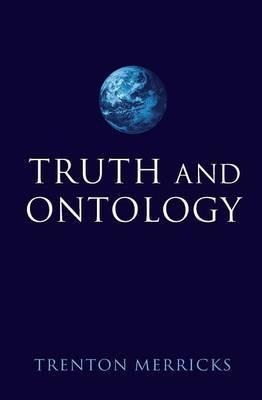
3:16: Another area of interest is the relation of truth to the world. So does truth depend on being in a substantive way at all? If it wasn’t, wouldn’t that mean that we’d be mistaken in opposing a philosophical theory because it doesn’t substantially depend on being, and in turn, be in direct conflict with presupposed scientific approaches to truth where, at the very least, we suppose that a scientific theory is saying something true about the world?
TM: “Truth depends on the world” could mean that a proposition is true because things are the way that that proposition represents things as being. If it means this, then I agree that truth depends on the world. On the other hand, “truth depends on the world” could mean that there is some x, the world, and each true proposition is true because x exists. If it means this, then I deny that truth depends on world.
“Truth depends on being” could mean something I affirm: for all propositions p, if p is true, then p is true because things are the way that p represents things as being. But “truth depends on being” could instead mean something I reject: for all propositions p, if p is true, then p is true because some x exists (or: some x exists and exemplifies F1..Fn ).
Let me illustrate the distinctions I have just made. The proposition that there are no unicorns is true. This is true because of how things are. Specifically, this is true because there are no unicorns. But this is perfectly consistent with denying (as I do) that there is some entity x such that that there are no unicorns is true because x exists (or even because x exists and exemplifies F1…Fn ).
Suppose a scientific theory implies the proposition that the climate is changing. This is true. I think this proposition is true because of how things are, and even because of what the world is like. Specifically, I think this proposition is true because the climate is changing. I think all this is consistent with denying that there is some x such that that the climate is changing is true because x exists.
3:16: And does your approach show that the correspondence theory of truth – and indeed any theory that claims a relation of any sort between truth-bearers and ‘that which makes them true’ is false?
TM: I think that the most natural way to understand the correspondence theory of truth in the context of propositions is to understand it to be a theory that implies the following: truth itself is relation, a relation that holds between a proposition and the entity that makes that proposition true. I think this implication is false, and so the correspondence theory is false. I think this implication is false because—so I argue—there are some true propositions that do not stand in any relation to the entity that makes that proposition true. One example of such a true proposition is that there are no unicorns. No entity makes that proposition true. So that proposition does not stand in a relation to the entity that makes that proposition true.
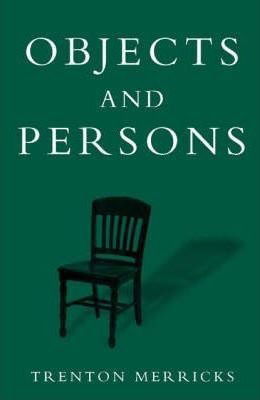
3:16: You also defend a huge distinction between objects, on the one hand, and persons on the other. It’s huge because you basically think that persons exist but objects don’t! I presume you’re talking about inanimate composite macrophysical things like tables, planes and gloves. So how come persons yes, the other stuff no?
TM: Suppose you believe that there is a left glove and there is a right glove and those two gloves compose an object, which object is a pair of gloves. Let’s call these alleged objects, respectively, ‘Lefty’, ‘Righty’, and ‘Pair’. Pair seems to cause both your hands to stay warm. Lefty does not cause this. Nor does Righty. But Lefty and Right “working in concert” cause this. So with regard to Pair’s causing your hands to stay warm, Pair is “causally redundant”; that is, your hands staying warm is already caused by Pair’s parts, working in concert.
Suppose that Pair causes no effects at all that are not already caused by its parts. Suppose that this is not because of some weird fluke. Rather, suppose that it is a matter of necessity that anything Pair would cause would also be caused by whatever parts it has. Then Pair is “essentially causally redundant.”
Suppose that Pair is essentially causally redundant. Then I think that you have no good perceptual reasons to believe that Pair exist. You might object: I can see Pair! I reply: you would have the same visual experience even if Pair did not exist; for that visual experience is caused by Righty and Lefty working in concert regardless of whether Pair exists. And I think that once you realize this, you no longer have a good reason, based on that visual experience, to say that Pair exists.
You have no good perceptual reasons to believe in Pair. Nor do you have good perceptual reasons to believe in Lefty. (The parts of Lefty—the leather shell, the wool lining, the glue and stitches—cause your visual sensation as of Lefty, and do so regardless of whether Lefty exists.) So whether you should believe in Pair or Lefty does not come down to perceptual reasons—to what you can see, to what you can feel keeping your hand warm, and so on. Instead, it comes down to “philosophical” reasons. I think that in the end, and for a variety of “philosophical” reasons, the best view is that Pair and Lefty do not exist.
We should deny that Pair and Lefty exist. More generally—so I argue—we should deny that that are any essentially causally redundant physical objects. That is, there are no physical objects that are essentially such that everything they cause if they exist is also caused by their parts working in concert. In other words: every physical object can cause effects that are not already caused by its parts, working in concert.
So the view is not really that people are good and tables are bad. The view is, instead, that every physical object can cause effects that are not already caused by its parts working in causal. That is the main thesis I defend about the ontology of physical objects.
Let’s now apply that thesis. I myself deny that tables can cause things that are not caused by their parts working in concert. So that is why I say no tables. I also think that persons and other conscious entities, unlike tables, can cause things not already caused by their parts working in concert. It’s a long story why I think this. But that story includes the claim that conscious mental properties can be causally efficacious, and also the claim that those properties are not reduced to anything about a person’s parts and how those parts are arranged.
3:16: And on your view, what is freewill, and does it exist? You pose a great thought experiment to approach this big topic: Suppose that time t is just a few moments from now. And suppose that the proposition that Jones sits at t was true a thousand years ago. Does the thousand-years-ago truth of that proposition imply that Jones's upcoming sitting at t will not be free?
TM: It is not obvious that the thousand-years-ago truth of that Jones sits at t implies that Jones’s upcoming sitting at t will not be free, that is, that Jones will not have a choice about that upcoming sitting. This is something one would have to argue for. And here is the most likely argument:
(1) Jones has no choice about the following fact: that Jones sits at t was true a thousand years ago.
(2) Necessarily, if that Jones sits at t was true a thousand years ago, then Jones sits at time t.
Therefore,
(3) Jones has no choice about the following fact: Jones’s sitting at time t.
I think that this is a bad argument. I think that one problem with this argument is that premise (1) is false, and is false even assuming that that Jones sits at t was true a thousand years ago.
How can that be?
Recall from above that I said that the proposition that there are no unicorns is true because there are no unicorns. More generally, for any proposition p, if p is true, this is because the way things are is the way that p represents things as being.
I defend the claim that if you have a choice about the way things are in a specific situation, then you thereby have a choice about the truth of the proposition that represents things as being that way.
Here is one way to apply that claim. Suppose you will freely eat pizza tomorrow. Then you have a choice with regard to your eating pizza tomorrow. Then—so I say—you have a choice with regard to the truth of the proposition that represents you as eating pizza tomorrow.
Here is another way to apply that claim. Suppose that Jones will freely sit tomorrow at t. Suppose, that is, that Jones has a choice about the fact that Jones will sit at t. Then Jones has a choice about the truth of the proposition that represents Jones as sitting at t, and—let me clarify—Jones has such a choice no matter when that proposition is true. So premise (1) is false. To get the full argument, see the papers “Truth and Freedom” and “Foreknowledge and Freedom.”
Note that none of this a positive argument for the claim that Jones is free with regard to sitting at t. Rather, this all assumes that Jones is free, and then shows where and why the argument above fails, an argument that purported to show that Jones was not free.
3:16: .You’ve looked at the puzzle of vagueness and several things come out of your brooding. One thing is that your arguments about propositions refutes a common objection to supervaluationism – a major response to solving vagueness. Another is that you argue that vagueness helps you to secure your mereological position over the extent of composition as vagueness has been used to attack the notion of restricted composition. And finally your perhaps most radical claim is that the current orthodoxy for treating all vagueness as a feature of language and/or thought is just plain false. So can you say what your position is regarding vagueness so we get a flavour of what you think?
TM: I defend some arguments that rule out certain accounts of the nature of vagueness. But those arguments are consistent with more than one account of the nature of vagueness. My views on vagueness do not go beyond the conclusions of those arguments. So I do not have a settled view on the nature of vagueness.
But let me describe one view that I take to be a live option, a view that has the result that it is false that all vagueness is a feature of language and/or thought. (This view shows up in my paper “Locating Vagueness.”)
Suppose, as a supervaluationist would, that the predicate ‘is a heap’ has multiple precisifications. Let us add that each such precisification is a property. And let the following be those properties: being H1, being H2, being H3...being Hn. Then an entity is in the extension of ‘is a heap’ if and only if that entity exemplifies all of being H1...being Hn. An entity fails to be in the extension of ‘is a heap’ if and only if that entity exemplifies none of being H1...being Hn. And it is vague whether an entity is in the extension of ‘is a heap’ if and only if that entity exemplifies some but not all of being H1...being Hn.
I think that an entity is in the extension of ‘is a heap’ if and only if that entity is a heap. So an entity is a heap if and only if that entity exemplifies all of being H1...being Hn. This suggests that an entity is a heap in virtue of exemplifying all of being H1...being Hn. So let us conclude that an entity is a heap in virtue of exemplifying all of being H1...being Hn. By parity of reason, let us also conclude that an entity fails to be a heap in virtue of failing to exemplify any of being H1...being Hn.
Suppose the above conclusions are right. Then it also seems that an entity is vaguely a heap in virtue of exemplifying some but not all of being H1...being Hn. It is possible for there to be no language or thought, and for an entity to exemplify some but not all of being H1...being Hn. So an entity’s being vaguely a heap is not a feature of language or thought. Rather, an entity’s being vaguely a heap is an instance of vagueness “in the world.”
Consider these properties: being human, being a dog, dwelling on Earth, and being made of cheese. Your exemplifying some but not all of these properties is located “in the world” but, obviously enough, does not imply metaphysical indeterminacy. By the same token, an entity’s exemplifying some but not all of being H1...being Hn is located in the world but does not imply metaphysical indeterminacy. So the above account of being vaguely a heap delivers an instance of vagueness that is in the world but does not imply metaphysical indeterminacy. So it is a mistake to conflate worldly vagueness with worldly indeterminacy.
3:16: How would you respond to these survey questions ?
TM:
Ethics: realism or anti-realism?
Realism.
Ethics: deontology, consequentialism, or virtue ethics?
If I have to guess: virtue ethics.
Abstract objects: Platonism or nominalism?
I definitely believe in abstract propositions. Does that imply Platonism?
External world: idealism, skepticism, or non-skeptical realism?
Non-Skeptical Realism
Free will: compatibilism, libertarianism, or no free will?
Libertarianism
Atheism or theism?
Theism
Naturalism or non-naturalism?
Theism implies non-naturalism. So do abstract propositions. Right?
Truth: correspondence, deflationary, or epistemic?
I don’t like any of these. See discussion of correspondence above.
3:16: And are there five books you could recommend for the curious readers here at 3:16 that will take us further into your philosophical world?
TM: I am currently writing a book on personal identity, called Self and Identity. This a book on both the metaphysics of personal persistence and also “what matters in survival.” Here are five books that give a good sense of the philosophical world I have been living in lately:
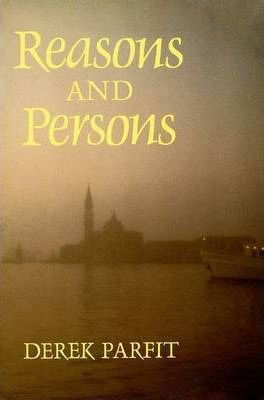
Derek Parfit Reasons and Persons

Marya Schechtman The Constitution of Selves
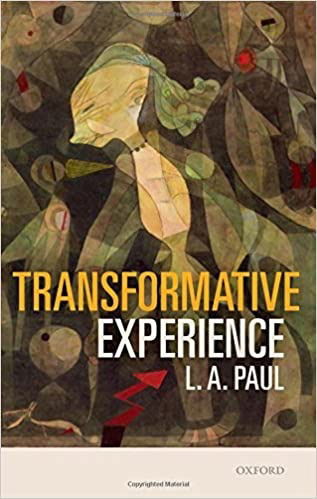
Laurie Paul Transformative Experience

Bernard Williams Problems of the Self
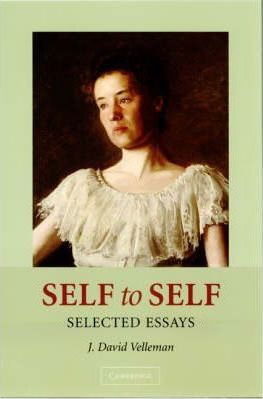
David Velleman Self to Self

ABOUT THE INTERVIEWER
Richard Marshall is biding his time.
Buy his second book here or his first book here to keep him biding!
End Times Series: the index of interviewees
End Time series: the themes